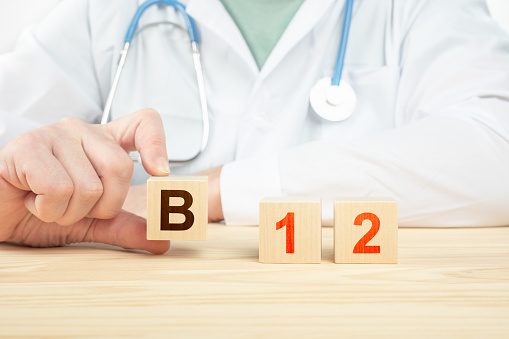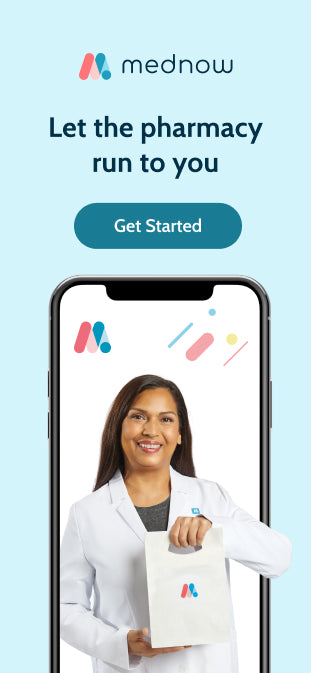Introduction
Vitamin B12 has the largest and most complex chemical structure and is unique among vitamins in that it contains a metal ion, cobalt. It is a water-soluble vitamin that the body can easily absorb, and the excess is removed to keep your body nutritionally balanced. It is naturally present in food such as meat, fish, dairy, and it is also available in tablet forms or by injection. Vitamin B12 is required for the brain and nervous system's function, myelination, and development. It is also required for the production of healthy red blood cells and the synthesis of DNA.
A deficiency can develop when vitamin B12 levels are insufficient to satisfy the body's needs. This can cause a variety of symptoms and possibly severe brain disorders if left untreated.
This article discusses the importance of vitamin B12, food sources, the cause behind vitamin B12 deficiency, and ways for prevention.
Recommended Amount Of Vitamin B12
Older adults are at increased risk for chronic diseases such as cardiovascular disease and cognitive function. The good news is that this population can mitigate some of these risks by eating nutrient-dense food and maintaining an active lifestyle. Good nutrition across the lifespan helps prevent chronic diseases, and it's never too late to make improvements to support healthy aging.
To maintain a healthy lifestyle and blood vitamin B12 levels, the Food and Nutrition Board (FNB) created dietary reference intakes for Vitamin B12 supplementation. The daily recommended dietary allowance for people aged 14 to 18 is 2.4 micrograms (mcg). The recommended dietary allowance for children aged 4 to 8 years is 1.2 mcg per day, and for children aged 8 to 13 years, the recommended dietary limit is 1.8 mcg per day. The daily dietary intake for pregnancy and breastfeeding is 2.6 and 2.8 mcg, respectively.
Importance Of vitamin B12
For Vegetarians And Vegans
Since vitamin B12 is not naturally found in plant-based foods, vegetarians and vegans must ensure that they receive enough vitamin B12 daily. Low vitamin B12 intake can result in health problems such as pernicious anaemia.
You may lower your risk of vitamin B12 deficiency by eating fortified foods like fortified almond or oat beverages, fortified soy or rice beverages, fortified soy burgers, nutritional yeast, and much more.
For Older Adults
Older adults are at increased risk for vitamin B12 deficiency; some may not get enough of the vitamin to satisfy their needs. Others may have difficulties absorbing it due to reduced stomach acid production that develops with age. The impact of low vitamin B12 levels on age-related illness and functional declines, such as cognition, cardiovascular disease, and bone health, resulted from changed cellular metabolism.
For Pregnant Women
Vitamin B12 has a significant role in preventing neural tube defects and other neurological disorders in infants. A pregnant woman needs 2.6 micrograms of vitamin B12 per day. Doctors also agree that taking a vitamin B12 supplement with folic acid will reduce the risk of developing birth abnormalities like spina bifida. Before using any supplement, consult your doctor, dietician, or other health professionals.
Food Sources Of Vitamin B12
| Food | Vitamin B12 (mcg) |
| Fortified almond or oat beverage | 1.1 |
| Fortified soy or rice beverage | 1.0 |
| Meat | 14.0-64.3 |
| Tuna | 7.9-8.2 |
| Salmon | 3.7 |
| Beef | 1.3-2.5 |
| Egg | 0.6 |
| Plain Yogurt | 1.0 |
| Milk | 1.3 |
| Breakfast cereals | 0.6 |
Vitamin B12 Deficiency
Vitamin B12 deficiency is a medical disorder in which tissue and blood levels are lower than average. This vitamin is required to produce red blood cells, which transport oxygen throughout the body. The tissues and organs don't get enough oxygen if you don't have enough red blood cells, and as a consequence, your body can't function properly.
Vitamin B12 deficiency can be caused by a variety of factors, including
- Autoimmune disease: Pernicious anemia is an autoimmune condition in which an anti-intrinsic factor inhibits the effect of the intrinsic factor, preventing vitamin B12 absorption.
- Malabsorption occurs in patients with a history of gastric bypass surgery as this part of the small intestine is where vitamin B12 is absorbed. Other damage to the small intestine, including inflammation from celiac disease, may result in a vitamin B12 deficiency.
- Dietary insufficiency: individuals who follow a strict vegetarian or vegan diet may develop a vitamin B12 deficiency due to insufficient vitamin B supplementation.
Symptoms Of Vitamin B12 Deficiency
A mild deficiency may cause no symptoms, but if left untreated, it may cause symptoms such as
1- Pale skin
2- Tiredness and weakness
3- Vision loss
4- GIT disorders such as diarrhoea, constipation, lack of appetite, and gases
5- Cardiovascular events like shortness of breath and heart palpitation
7- Depressive symptoms
8- Neurological symptoms such as cognitive decline and behavioral changes
In infants, signs of deficiency include:
1- Megaloblastic anaemia
2- Problems with movements.
3- Not growing or developing at the expected rate.
Health Risks From Excessive Vitamin B12
The Food and nutrition board did not suggest an upper limit for Vitamin B12 supplements since it is a water-soluble vitamin. The kidney will simply eliminate any excess in urine. However, supplementing with high doses of Vitamin B12 has been related to undesirable side effects such as dizziness, nausea, and tiredness.
Treatment Of Vitamin B12 Deficiency
Intramuscular injections or oral vitamin B12 supplements can treat vitamin B12 deficiency. You'll need to start with frequent vitamin injections for quick replacement if you have pernicious anaemia, severe neurologic symptoms, or malabsorption syndrome. Doctors suggest oral replacement in some cases that are considered asymptomatic or a mild disorder with no absorption.
Mednow doctors will determine the appropriate dose for long-term benefit based on your situation and severity degree.
Prevention Of Vitamin B12 Deficiency
Most people can prevent vitamin B12 deficiency by doing the following:
- A balanced diet containing meat, fish, and dairy products should have enough B12 for daily requirements.
- For vegans and vegetarians, dietary options should include:
- Fortified breakfast cereals
- Fortified nutritional yeast
- Fortified soy milk
- Take supplements when required.
- Some medications, such as proton pump inhibitors used to treat gastroesophageal reflux disease, inhibit vitamin B12 absorption by decreasing stomach acid production, which is required for vitamin B absorption.
Conclusion
Vitamin B12 is an essential vitamin that is mostly found in animal products. The average adult's daily dietary intake is 2.4 mcg and as we age, our ability to absorb vitamin B12 may decline. Instead of using dietary supplements, fortified foods like nutritional yeast can provide sufficient amounts of vitamin B12.
Older adults are at risk of developing vitamin B12 deficiency due to difficulties in absorbing vitamin b12 effectively. Additionally, Vegans and vegetarians are at increased risk of developing vitamin B12 deficiency as their diets exclude vitamin b12 completely.
This article offers general information only and is not intended as medical or other professional advice. A healthcare provider should be consulted regarding your specific situation. While the information presented is believed to be factual and current, its accuracy is not guaranteed and it should not be regarded as a complete analysis of the subjects discussed. All expressions of opinion reflect the judgment of the authors as of the date of publication and are subject to change. No endorsement of any third parties or their advice, opinions, information, products or services is expressly given or implied by Mednow or its affiliates.
Commencer
